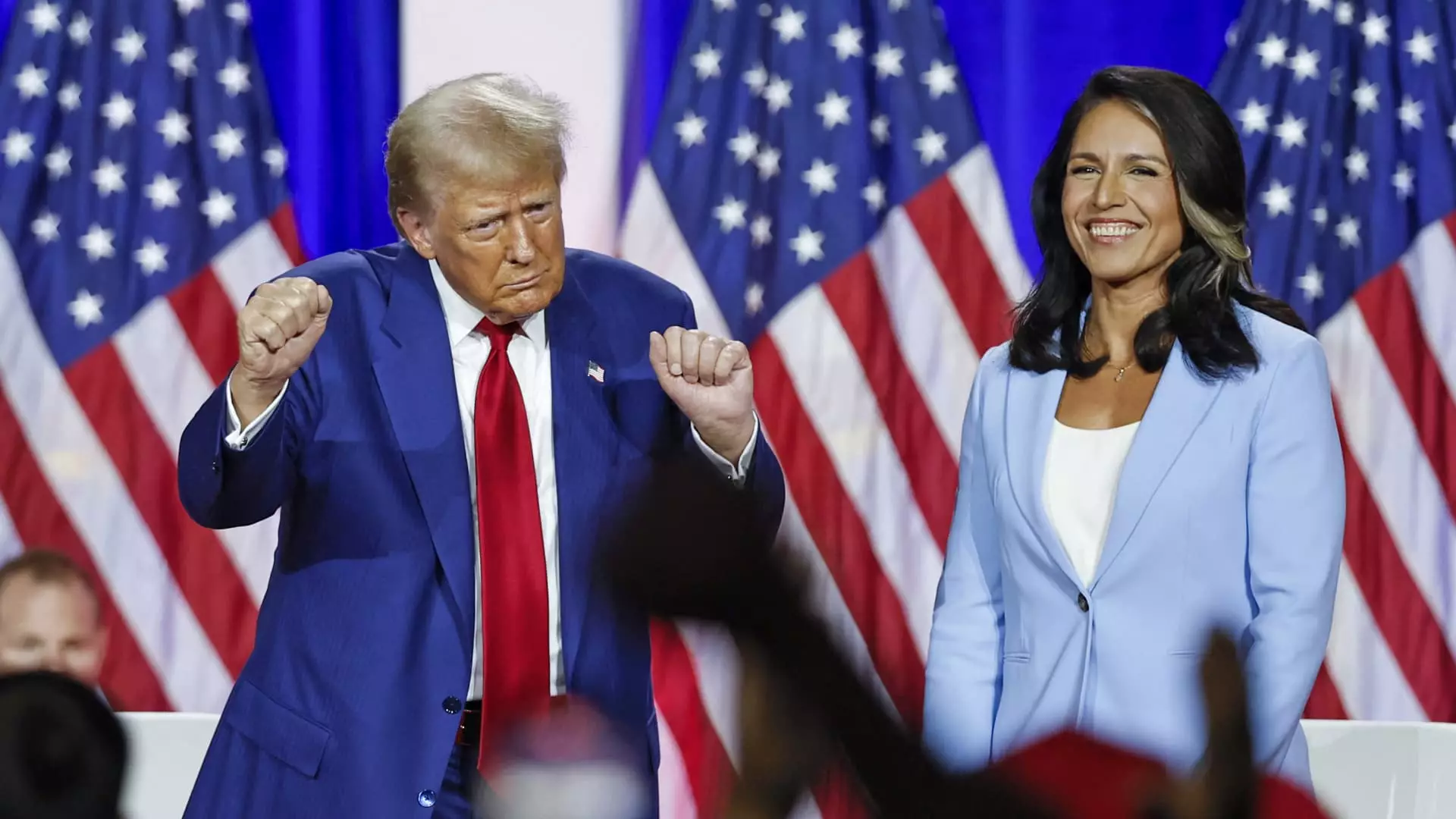The political landscape in the United States is characterized by its fluidity, where alliances and ideologies shift, often in unexpected directions. A striking example of this dynamic is seen in the recent endorsement of former President Donald Trump by ex-Democratic Representative Tulsi Gabbard. Her involvement in Trump’s campaign underscores a critical shift in how debates and political messaging may unfold in the upcoming election cycle. Gabbard’s insights into Vice President Kamala Harris’s policy shifts and past record could play a pivotal role in shaping the narrative of the debates.
During her interview on CNN’s “State of the Union,” Gabbard directed her critique toward Harris, emphasizing her attempts to distance herself from her earlier positions. Gabbard’s assertion that Harris is “trying to hide from voters” reveals a tactical understanding of how to exploit perceived weaknesses in an opponent’s campaign strategy. Gabbard, who gained notoriety for her forthright questioning during the 2020 Democratic primaries, perfectly embodies the role of an adviser well-versed in the art of debate. Her previous experience with Harris not only legitimizes her current role but also provides valuable lessons for Trump as he prepares for their upcoming encounter.
The strategy appears to pivot on Harris’s attempts to moderate her platform. In the years since the last election, Harris has been forced to align her policy stances closer to the center. For instance, her shift on issues such as immigration and energy policy could provide ample fodder for Trump, should he choose to engage on these topics. By focusing on Harris’s perceived inconsistencies and past actions, Trump could effectively undermine her credibility, a tactic that could resonate with undecided voters who prioritize authenticity in political discourse.
However, incorporating Gabbard’s advice is not without risks. Known for her conspiratorial critiques of the Biden administration, Gabbard’s approach may encourage Trump to delve into sensitive territory that could detract from his message. If Trump chooses to amplify conspiratorial narratives, he risks alienating moderate or undecided voters who could be crucial for electoral success. By drawing attention to his own legal challenges in the process, he may inadvertently undermine the very message he intends to promote.
Polling suggests that the electorate is increasingly skeptical of extreme positions, making a balanced approach crucial. This challenge of finding a middle ground will require Trump to be astute in his messaging—homing in on Harris’s record without overly veering into conspiracy-laden rhetoric that may deter key voter demographics. Therefore, while Gabbard’s perspective holds significant merit, it must be employed judiciously for maximum effect.
Political Defections and Implications for the GOP
Gabbard’s alignment with Trump also signifies a broader trend of political defection, wherein traditionally Democratic figures align with Republican ideologies. This growing phenomenon presents an opportunity for Trump to broaden his appeal to disenchanted Democrats and independents. With political figures such as Gabbard and Robert F. Kennedy Jr. supporting Trump, there is the potential for the GOP to foster a narrative of inclusivity—positioning itself as a refuge for those dissatisfied with the current Democratic administration.
The Trump campaign’s strategic inclusion of these figures signals an intentional outreach to independent voters who may feel politically homeless in an increasingly polarized environment. As conversations continue around potential cabinet positions should Trump win the presidency, the implications of Gabbard’s influence could reshape the GOP’s identity, challenging traditional boundaries of party affiliation.
As the date for the debate approaches, both Trump and his advisers must navigate a complex political landscape informed by strategic insights from figures like Tulsi Gabbard. The effectiveness of Trump’s messaging will heavily depend on how well he can adapt these strategies while avoiding the pitfalls that come with excessive conspiracy rhetoric. With the potential public perception of Harris at stake, the debate could very well alter the trajectory of the campaign going forward. Ultimately, both candidates must engage in a delicate dance, balancing authenticity with the tactical necessities of an election that is sure to be as dynamic as it is contentious.


Leave a Reply